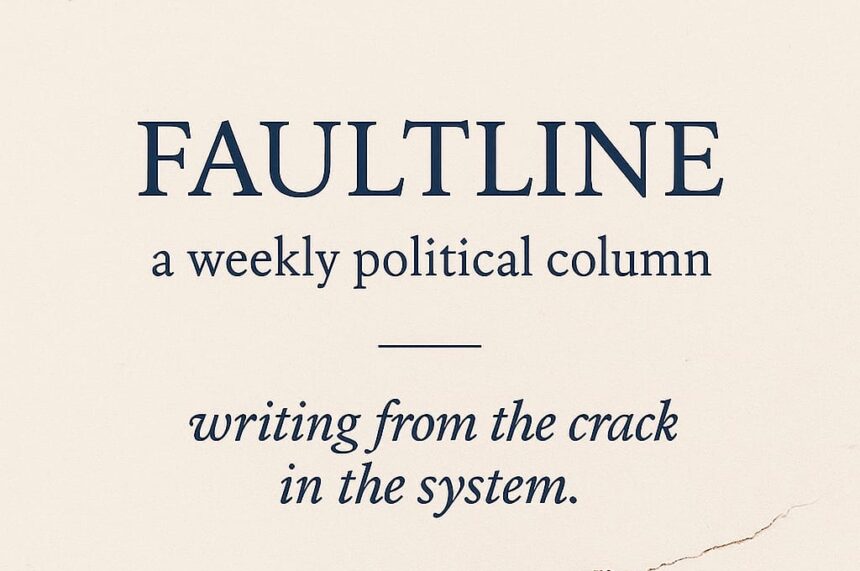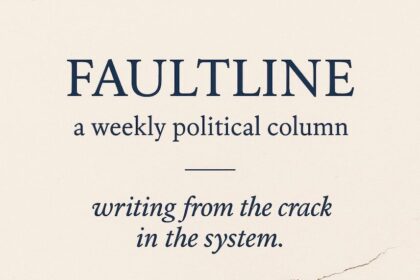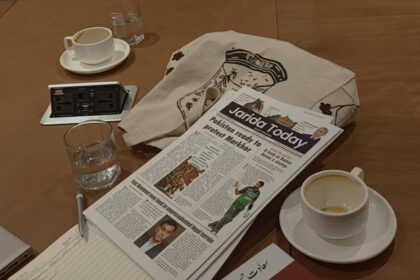On the event of the creation of Pakistan, Muhammad Ali Jinnah (allegedly) asserted that what the people chose
to believe in (however nihilistic it appeared), the delusions they would purposefully harbour—about democracy,
spirituality, everyday suffrage, and whatnot—for decades to come, and the faith they embedded within the
nationhood (or lack of) of this virgin land—all of which were inherently visceral and inevitably vital
beliefs—had nothing, in the end, to do with the affairs of the state. This author has most likely exaggerated more
than one aspect of the essence of Quaid’s philosophy, despite how morally strategic it sounds in writing. The real
confession, however, lies in one simple truth: what of the identity for those who run away? Even worse, those
who choose to?
Migration is the most natural human instinct: to move towards areas of abundance in all its forms, to refuse to
look back on the vacuum that remains (further exacerbated by your choice to leave, thereby making you the
most alive thing constituting said space), and to be in constant search for the better—ideology, homeland, joy,
life. I have grappled with this moral dilemma for a while now. What is the greater betrayal: to leave and have no
reason to come back or to stay, rotting away in the guilt of your inaction and, therefore, your heightening
disbelief? To become so unhappy in your collective existence that every individual action, while spiritually
suffering, loses all intrinsic devotion outside of the plural.
One can imagine this struggle through a cannibalistic lens. The all-knowing desire to consume, to become so one
with what is painstakingly manufactured at birth and has nothing to do with the amour fati-isation of your life’s
trajectory. To think of Pakistan as both the beast and the prey: spitefully devouring, conveniently swallowed, and
nefariously ravaged. The assumption that one’s identity here could be a monolithic construct is reductionist at
best; there is so much nuance to the hubbul watni propaganda that it is difficult to deconstruct in the span of a
naive column. The crisis of belonging, therefore, in a postcolonial state is that it will always be tainted with
disillusion, like an unsustainable negotiation in the midst of survival and self-respect, all while being tied to the
larger image of existential loss.
Warsan Shire once wrote that no one leaves home unless home is the mouth of the shark. I have yet to come
across a statement that articulates so succinctly what it is like to simultaneously be a patriot (derogatory, basically
the discounted lovechild of nationalist, or comrade—which is another debate on identity and the politics of
belonging) and a traitor. Being a Pakistani comes with its fair share of both, and in my case, a glaring realisation
of the former’s gullibility and the latter’s logic. When the state becomes the tyrant, and all liberty becomes
identical in connotation with sedition, the lines between what you are allowed to do and what becomes your
performance are painfully blurred. Then comes the cognitive dissonance of it all. Mostly, I know it is deliberate,
a kind of self-preservation that allows me to inhale through my days without collapsing at the sheer existence of
it all, the synonymity with injustice to the extent that anything beyond it appears extraterrestrial altogether.
Other times, I fear that I am turning into the same apolitical masochists I have looked down upon my entire life.
Nothing makes one’s blood run cold faster than the knowledge that they wouldn’t care if it did.
To be surrounded by this machinery that gallops through the people’s hope, horrifyingly all-consuming in its
pursuit of power, and to watch the way it affects real people—people with families, kids who want to get the
next big toy, mothers who labour away in the heat of the state’s suppression (a juxtaposition of sorts), and the
illusion of the nuclear family that keeps fantasies of class ascension alive to the extent that proletariat division
will always be a thing, but subtle enough to never employ the acknowledgement of it. It is dangerously
exhausting to be ingurgitated like this and to realise that at some point, your ambitions evolved from the pursuit
of tangible happiness to just coexistence with a people whose struggle you cannot help but internalise
obsessively.
This is the part where the leaving hurts. Because then, what is the purpose of embodying Jinnah’s passion when
the first sign of being gnawed at—and coincidentally the one doing the gnawing—makes one want to leave? It is
foolish to live in the assumption that one can just “go to the woods” to live deliberately when reality doesn’t
seem to be working as fine, as if Thoreau had any penchant for what the human emotion could possess beyond
superfluous desire and the hedonistic affirmation of it. To belong to a country, and a body of people with its
faint pulse means you have to be willing to uproot—if only metaphorically—your longings, just so you can add
your name to the long list of people whose first (and often, only) calling began with the land.
The hunger of nationalism will rarely fade, and it will be our collective memory that would volunteer as tribute,
a flesh that will rot, stink, refuse to be burnt, and finally, be buried in its stubborn unsightliness. There is a
tragedy to this knowledge and relief to forgoing it still: that you will be eaten and still call it love. To stay is to be chewed over; to leave is to risk never tasting home again. Either way, there is a certain hunger. And it refuses to lose.












